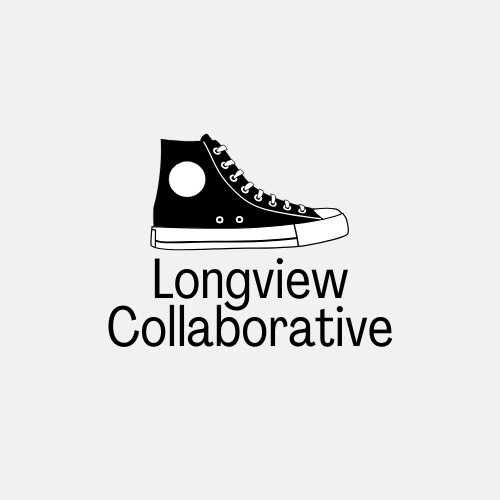
Why does work have to be so…work like?
A few years ago, after a particularly raucous and outlandish workshop, one of the participants approached the front of the room. I LOVE when people come to the front of the room after a workshop/session/class/presentation to chat me up. Sometimes the feedback is good, sometimes they have constructive criticism, but most often, they want to talk about the day. They want to share something they learned, something they were surprised by, or something they are excited to talk about moving forward.

My favorite comments are those that indicate I’ve broken some preconceived notion or defied some expectation (no matter how low). When people say things like “this was much better than I thought it was going to be” or “I wasn’t looking forward to this, but I had a lot of fun,” it absolutely makes my day. I like the idea that people look at me and immediately come to a conclusion about who I am, how I’m going to be, and what I’m going to be about. If only they knew how I’d look and dress if the oppressive societal norms that have shackled my inner punk for far too long were thrown off and into the trash heap of history where they belong.
But I digress.
On this day, the participant waited in a line of six people. He waited patiently and seemed to be in no hurry. He stood by casually as I talked with others who were there before him, an occasional smile would appear if he heard something he liked. When it was finally his turn, the big reveal:
“There’s a typo on one of your slides.”
And with that he was gone. He didn’t even tell me what slide it was. Here’s the wild part; I still don’t know what he was referring to. I have searched that presentation a million times. I have had friends and colleagues look at it. I use that presentation frequently and he is the only person to ever tell me there was a typo in it. This guy sat through a full workshop and then waited in a line to share this information. What did he see that no one else has been able to see?
I believe that he saw a typo.
While I would love to find this person and ask him where the typo is, I will likely never have that option. I believe both things can be true here. I believe there could be a typo and that there isn’t a typo. But Ryan, you might say, how can that be? They’re mutually exclusive things, it’s wrong or it isn’t. This is where it gets interesting.
It’s all about perspective.
The minute we start to think we have all the answers, we lose that perspective. Something in that man’s experience led him to believe something was wrong with my presentation. There’s an incredibly important question in all of this: where am I likely to learn more, by arguing that my presentation is in fact error-free OR through a conversation with him?
For starters, I would have the information I so desperately want about the location of the suspected typo. I would also likely learn something about this person, his perspective on things, and where he comes from. We might have made a network connection and we might even have become friends. And it would all start from a difference in perspective.
What’s punk about training?
I like to think of myself as the punk rock training guy because my approach is different from what came before me. I have never been a fan of the buttoned up, formal, well rehearsed style of presenting. Give me a microphone, a basic set of slides, and a topic. The juicier or more taboo the topic, the better. I like to get in the nitty gritty and the muck of work. Relationships are messy and work is no different. Let’s talk about it, get it out in the open, break it down, and make it better. I tell groups all the time that there are only three outcomes to any situation; things will get worse, things will stay the same, or things will get better. If we do nothing, two are likely. If we try something, things might get better. While better is certainly relative (there’s that pesky perspective again), I have found that teams can generally find some form of better they can agree on.
The punk ethos is something to behold. It’s anti-establishment, pro-human, and non-conformist. Punk is the middle finger to what existed before. Most importantly it uses music as a mechanism of change. It’s really hard to bring punk rock into a training or workshop. Believe me, I’ve tried.
I think it helps to understand what I’m listening to while I write this. I’m jamming to The Hives, specifically their 2023 album The Death of Randy Fitzsimmons. The song Countdown to Showdown has some great lyrics. “Got all the facts, got all the figures, but with all of them you disagree.” I love that.
While I shouldn’t be mistaken for someone who eschews data because it doesn’t align with my personal beliefs and opinions, there is something to be said for challenging what we know to be truth. In our challenge of truth, we find exploration and growth.
We are currently approaching the fifth anniversary of the beginning of the COVID-19 pandemic (specifically in the United States). I was someone who followed all the guidance. I worked for a public health government agency, so that was probably a given. Most of us did what we could to lessen the horrible impact and perhaps even save a few lives along the way. Healthy skepticism is normal and natural but what happened during the pandemic went beyond that. People were outright hostile and abusive and it was wholly dependent on their views. Refuse to wear a mask, you’re a murderer. Wear a mask and you’re a bootlicking communist.
So where is the line between being a punk rocker who is challenging the status quo and someone who denies truth to the point of harm? I don’t have a great answer to that question. Honestly, that’s pretty punk rock; ask a big question as though I’m going to blow your mind and then bail like “yeah, I got nothing. Bye!”
For me, the line is what you want in the end. Is my goal to make you feel horrible and/or to attack your position? Is my goal to get in your face and try and beat you down with my words? Or is my goal to challenge a status quo that might be harming you and those around you?
I do that by asking tough questions and assuming nothing. I spend a lot of time talking to leaders who tell me all about the problems on their team. I have yet to have a leader tell me that they are the problem. I’ve had leaders hint that they might be part of the issue, but it’s almost always hidden in some way, like it’s not really me, it’s them. I work really hard at breaking that belief system. I don’t want leaders to take on responsibility for issues they didn’t cause, but we have to acknowledge our role in every relationship.
I have watched others try to do this type of work. Some are successful and some are not. The commonality between me and those who do this well lies in an unrelenting desire, almost a compulsion to get to the truth. We see and view things differently based on perspective, but there is always some level of truth. That thing we fundamentally know but also want to challenge.
Think of return-to-office mandates impacting office workers all across the country. The employee’s truth in remote and hybrid work is increased productivity, greater flexibility, and more control over their life. The employer’s truth in fully in office work is greater collaboration, innovation, and oversight. What is the actual truth? It depends. If I were brought in to find a resolution to this conflict, I would start by asking employees what they believe the employer’s truth to be and vice versa. When we start from our viewpoint of the other party’s perspective, we put ourselves in a place to listen and understand, even when we disagree. We won’t always find total agreement, but the goal is to find a way forward that everyone can live with and thrive within.
The punk mindset allows me to stay buoyant in a world where it’s so, so easy to sink into the status quo. Swimming upstream is hard and believe me, there are days when I want to trade in my dress-code-policy skirting attire for some nice pleated khakis, white dress shirt, ugly tie, and discount blazer to just go and do some old-school “training.” But I don’t, because the people I work with do important things. They’re world changers. I’m just some guy who gets people, but my friends and colleagues? They do the good work, the hard stuff that takes years to learn and decades to perfect.
Are you in need of someone with a punk mentality to help your teams gel, navigate conflict, and look for a better tomorrow? If so, visit our site below and learn how Longview Collaborative can help you and your team. Give us a try. If for no other reason than it could be really fun. Like Hives frontman “Howlin’” Pete Almqvist says, “All good rock music has an element of something ridiculous.” Why can’t the professional setting be the same way?
Punk Rock Training Guy was originally published in Never Stop Writing on Medium, where people are continuing the conversation by highlighting and responding to this story.
